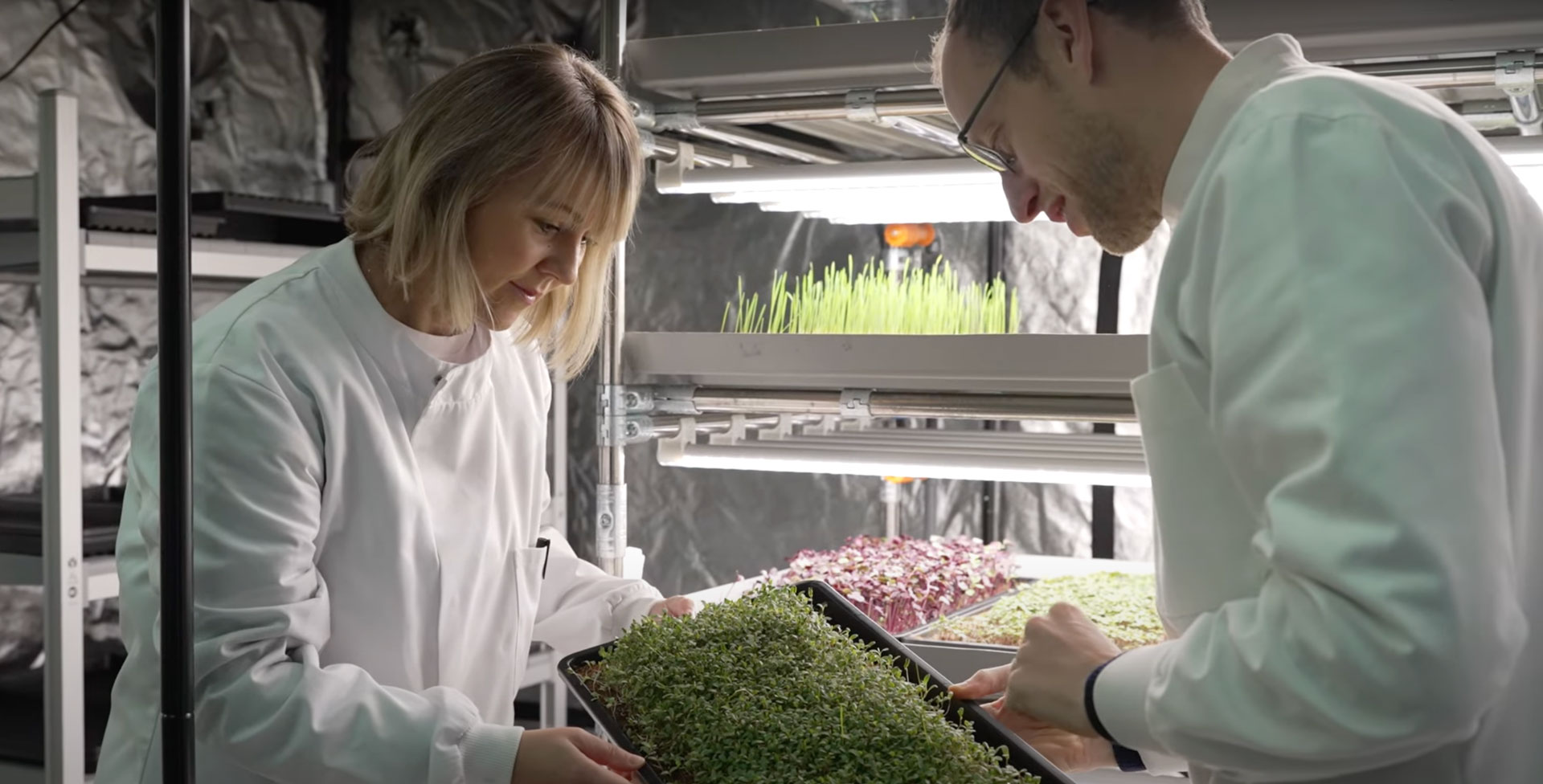Led by Kilnsey Park Estate, this collaborative initiative has developed an innovative application for wool as a key growing substrate used in small-scale vertical farming. In collaboration with the Biorenewables Development Centre, the University of York's Centre for Novel Agricultural Products and Harrison Spinks, the project aims to revolutionise local food production and sourcing in the UK.
Wool reimagined
The Wool Innovation Community, part of Innovate UK’s Circular Economy Innovation Network and led by the Innovate UK Business Connect AgriFood team, was launched in 2022 to revive the overlooked potential of UK wool. Once seen as a low-value by-product of the sheep industry, wool is now being recognised as a renewable, biodegradable smart material that could transform the sustainability of modern industries.
Innovate UK Business Connect brought together over 550 stakeholders – from farmers to retailers and designers – to form the Wool Innovation Community and create the Wool Innovation Action Plan focused on exploring new markets, circular design, new business models, and material reuse. This collaborative effort has led to the emergence of novel applications for wool across various sectors including construction, horticulture, and packaging. The following case study explores one of these projects.
Introduction
The ‘Developing a Circular Model for Low-Emission, Healthy Total Controlled Environment Agriculture (TCEA) Food Production’ project is a groundbreaking initiative aimed at revolutionising local food production and sourcing in the UK. Led by Kilnsey Park Estate, in collaboration with the Biorenewables Development Centre, the University of York’s Centre for Novel Agricultural Products and Harrison Spinks, this project will develop an innovative, small-scale vertical farming model that produces local, healthy and environmentally friendly foods such as micro greens and mushrooms.
Challenge
The UK faces a significant food security challenge, importing 46% of its food needs and relying on long, centralised supply chains vulnerable to disruption. Traditional food production methods are resource-intensive and contribute to environmental degradation. There is an urgent need for innovative solutions that can produce healthy, nutritious food locally with minimal environmental impact.
Approach
This project focuses on optimising Total Controlled Environment Agriculture (TCEA) technologies to create a circular and scalable model for local food production. The use of wool as a key growing substrate to provide necessary nutrients keeps input low, and the combination with hemp provides necessary substrate structure. Key components of the approach include:
- Containerised TCEA facility: Developing a mobile, renewable-powered growing unit that can be deployed on disused land, reducing the need for arable land
- Resource efficiency optimisation: Testing various growing systems and substrates, including wool, to maximise the nutritional value and yield of crops
- Nutrient-rich biofertiliser: Utilising anaerobic digestion (AD) to produce a low-cost, lower-emission alternative to commercial fertilisers, enhancing soil health and reducing waste
- Renewable energy integration: Powering the facility using solar energy and biogas from anaerobic digestion to achieve a projected 30% reduction in emissions
Benefits
The project offers multiple benefits:
- Enhanced food security: By producing food locally, the UK can reduce its dependence on imports and mitigate supply chain vulnerabilities
- Sustainable agriculture: The circular model, making use of the nutrients available in wool that would otherwise be wasted, promotes resource efficiency, reduces emissions, and minimises waste, contributing to environmental sustainability
- Economic growth: The project supports the growth of the bioeconomy, which in just the North of England generates a turnover of £91 billion per year, creating jobs and fostering innovation
- Healthier food options: The focus on nutrient-rich crops can lead to improved dietary choices and public health outcomes
How Innovate UK Business Connected accelerated the innovation
Innovate UK Business Connect provided crucial one-to-one support to Kilnsey Park in developing and refining the project proposal. Through the Wool Innovation Community, we facilitated connections with key partners, including the Biorenewables Development Centre and the University of York, enabling a collaborative approach to tackling the challenges of sustainable food production. This support was instrumental in the consortium securing £414,999 in funding from Innovate UK and BBSRC to bring the project to fruition.
Innovate UK Business Connect’s support has been invaluable in helping us shape and realise our vision for a sustainable and resilient food production system
Jamie Roberts, Managing Partner at Kilnsey Park.


